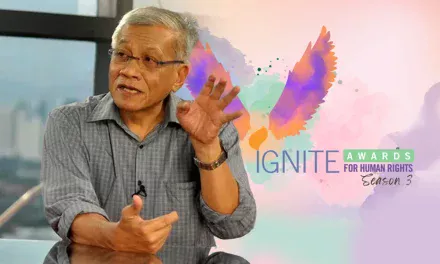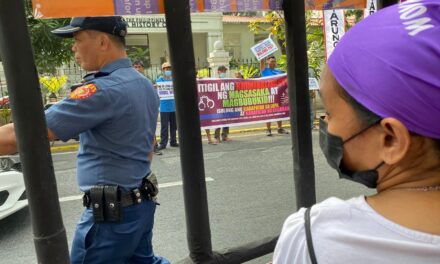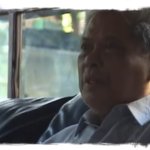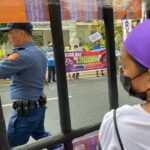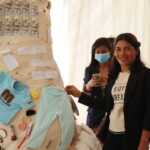; The 31st annual foreign ministers of ASEAN that took place in Manila July 21-25 produced a communique declaring support for the creation of an “ASEAN Economic Monitoring Mechanism” and the use of regional currencies in intra-ASEAN trade.
Many observers found these results disappointing, especially given the regional circumstances surrounding the meeting. For when the ASEAN foreign ministers came together in Manila, they did so under vastly different circumstances from those that surrounded their meeting in Kuala Lumpur last year.
ASEAN is probably at the nadir of its 31-year history. Economies have collapsed throughout the region. Indonesia and Thailand have lost the last shred of their economic sovereignty, being under stabilisation programs that are strictly implemented and monitored by the International Monetary Fund (IMF). Malaysia, long the government most critical of hegemonic powers, is focused inward as it seeks prevent its economy from unravelling a la Thailand and Indonesia. And the Philippines, after stumbling drunkenly toward the abyss for a year, is poised for a freefall.
There is, fortunately, a silver lining to ASEAN's time of troubles. The organisation has stepped out of President Suharto's long shadow. For over 30 years, the disgraced Indonesian dictator called the shots in the organisation. To shore up his regime, Suharto identified criticism of Indonesia's lack of democracy and respect for human rights with “intervention,” and proceeded to enshrine “non-intervention” defined thus as one of ASEAN's basic “principles.” It was also Suharto who pushed ASEAN to commit one of its worst blunders: admitting the Burmese junta as a member in 1997.
Instead of non-intervention, Thailand, a democratic state, is now taking the lead in articulating “flexible engagement,” which would make criticism of another government's policies on human rights and democracy a legitimate enterprise. Even the weak-kneed Philippine foreign affairs secretary, Domingo Siazon, Jr., who allowed Suharto last year to manipulate the Philippine government into taking a high-profile role in legitimising the Burmese junta's entry into the regional body, is now talking flexible
engagement.
But the emergence of flexible engagement as an alternative principle of ASEAN solidarity is the one bright spot in an otherwise bleak picture.
In Indonesia and Thailand, Washington is unashamedly using the IMF to push its decade-long bilateral agenda of dismantling the trade and investment barriers to US goods and investments in ASEAN. The ASEAN Free Trade Area (AFTA), which was designed to create a regional market benefiting mainly producers and consumers in the area, has been rudely pushed to the side by an IMF-directed trade and financial liberalization program that promotes the interests principally of Northern transnational corporations and banks.
What Prime Minister Mahathir has characterised as the “new colonialism” sweeping the region has implications for security and diplomacy.
Washington is using ASEAN weakness not only to push its economic interests,. It is also taking advantage of the situation to promote its military and political goals. It is not fortuitous that the United States is pressing the Philippines hard at this time to pass the Visiting Forces Agreement (VFA) that would pave the way for the re-entry of large numbers of US troops into the country. It is also not surprising that the Americans are also currently pushing Thailand, Malaysia, and Indonesia to conduct more joint military exercises with US troops, allegedly “to improve their security capabilities.”
The economic crisis has major implications for one of ASEAN's most important projects, the ASEAN Regional Forum, which will begin its meetings on June 28, after the ASEAN foreign ministers' meeting.
The ARF brings ASEAN's nine member countries together with about 10 other Asia-Pacific countries for an annual dialogue on security issues. The ARF has been principally an initiative of ASEAN, but for a number of years, several governments, specifically South Korea, Japan, and the US, have been chafing at ASEAN's leadership of the process One can only expect these countries to make use of the ASEAN's current disarray to dilute its leading role.
The US, in particular, has been vocal about ASEAN's goal to make ARF the multilateral arena for settling security and security-related disputes in the Asia-Pacific. Washington's position has always been that the ARF should simply be an adjunct to the US military presence, which it considers
the cornerstone of regional security. It is now expected to more aggressively “put ARF in its place” at the coming meeting.
The Americans have also had a non-constructive attitude toward another ASEAN initiative, the ASEAN Nuclear Weapons Free Zone (NWFZ). By refusing to be a signatory to the treaty, Washington has undermined it, giving an excuse for China and other nuclear powers to also refrain from signing on.
One of Washington's priorities in the coming meeting is to shelve further discussion of this institution, which it sees as potentially constraining its ability to move its forces about at will in the Asia-Pacific.
In ASEAN's effort to construct a multilateral order for peace and security, Japan is, unfortunately, no help at all. Its own economic troubles have made Tokyo even more subservient to Washington. From Japan's perspective, the US-Japan Security Treaty, not the ARF, is the axis of Asia-Pacific security, and Tokyo is proposing its recent Access and Cross-Servicing Agreement (ACSA) with Washington, which commits Japan to logistical support of US military operations outside Japan, as a model for other countries in the region, including the Philippines.
As for China, it has lately been more sympathetic to ASEAN's aims for the ARF. Unfortunately, it continues to insist that its dispute with four ASEAN countries over the Spratly Islands is not a subject for multilateral discussion with ASEAN but a matter for bilateral resolution.
If there was any moment that ASEAN needed solidarity, it is now. As the old saying goes, ASEAN countries must hang together today or they will surely hang separately tomorrow.
Fortunately, the elements of a program that would counter the current disarray and serve as the base for renewing and reinvigorating ASEAN are clear.
First, on the economic front, the ASEAN countries must withdraw from their programs with the IMF, which have only worsened the regional financial crisis. Breaking with the Fund does not mean being forced into a go-it-alone strategy. The real alternative to the IMF is transborder coordination of macroeconomic, trade, exchange rate, and foreign debt repayment policies.
In addition, the ASEAN countries must push Japan to revive its proposal for an “Asian Regional Fund,” which would deploy the reserves of Japan, China, Taiwan and other reserve-rich countries in defending the Asian currencies against attacks by international speculators. The AMF would also serve as an alternative source of emergency, debt, and development financing to the IMF.
And, of course, ASEAN must also move to make AFTA a reality as a base for regional import substitution industrialisation that would eventually deepen the region's industrial structure as well as buffer the region's producers and consumers against the vagaries of international trade and
capital flows.
Second, on the security front, ASEAN must defend its leadership role in the ARF. It must freeze discussions of VFA's or ACSA's with the United States and suspend military exercises with US troops. These activities only serve to derail the ARF from its objective of being the key arena for the resolution of security disputes.
ASEAN must strongly press India and Pakistan to give up their nuclear weapons programs. But it must also press the US and other nuclear powers to sign the NFWZ as quickly as possible. Moreover, it cannot afford to be hypocritical. It must advance the perspective that while the India-Pakistan nuclear arms race is destabilising, only total nuclear disarmament led by US and other massively armed nuclear powers will ultimately guarantee the region and the world against nuclear war.
Pushing this economic and security agenda will be an uphill battle. ASEAN is, however, likely to be more successful pushing a program of democratisation and human rights promotion, which would be largely directed at its member countries. Here the priorities are clear: promoting flexible engagement instead of non-intervention as the key ASEAN principle toward member states; suspension of the Burmese junta until it makes serious moves to end its repressive practices and democratises; fixing of a timetable toward early elections in Indonesia; and an immediate resolution of the East Timor issue on the principle of self-determination by the people of that tragic country.
The elements of ASEAN's program of renewal are clear. The question is: will ASEAN's member countries have the political will to follow through on it?
*Walden Bello is professor of public administration and sociology at the University of the Philippines. He and Ehito Kimura are members of Focus on the Global South, which was one of the co-sponsors of the Asia-Pacific Alternative Security Network Conference held on July 22-24 in Manila.

